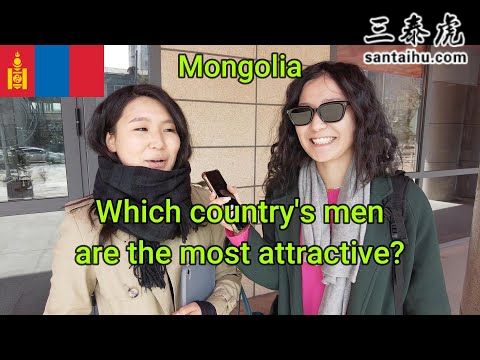Is Mongolia anti-China?
蒙古国反华吗?

以下是Quora读者的评论:
Clifford Nelson
I knew a woman from Mongolia about 25 years ago. She told me she didn't like Chinese people. I can understand the feeling, but that doesn't mean I agree. I also know there are twice as many Mongolians in China as in Mongolia, and they mostly seem happy with life in China. Is she representative of most Mongolians? Does this sentiment still exst? It's known that the Mongolian government seems to dislike China, which seems historical. Part of it is probably that Mongolia is quite economically dependent on China.
25 年前我认识一个蒙古女人。她跟我说不喜欢中国人。我能理解这种情绪,但不代表认同。我还知道中国的蒙古族人口是蒙古国的两倍,他们在中国生活得大多挺开心。她能代表大多数蒙古人吗?这种情绪现在还有吗?大家都知道蒙古政府好像不喜欢中国,这似乎是历史原因。部分可能是因为蒙古在经济上很依赖中国。

Oni Song
The Mongolian government needs to maintain its legitimacy and authority by opposing China. This is not only due to the political environment at the time of separation, but also because the former Golden Family of Mongolia remained in China.
蒙古政府需要通过反华来维持自身合法性和权威。这不仅是因为独立时的政治环境,还因为蒙古黄金家族的后裔仍在中国。
Min Oh Kang
Before the war, China's territory was the Qing Dynasty. However, when the West gave all of China's territory to the Han people at the end of World War II, it must have been a great wound to Mongolia.
战前中国的版图是清朝。但二战结束时西方把中国全部领土划给汉族。
浊酒一杯家万里
Why does Mongolia dislike China?
Outer Mongolia, Vietnam, and South Korea were once provinces or vassal states of China. After the collapse of the Qing Dynasty, these countries became independent under foreign interference.
Without exception, these countries had to establish their own national identity to resist China's huge attraction, otherwise they couldn't maintain independence. Coincidentally, the history textbooks of these countries all emphasize that China has been their enemy for thousands of years.
But here's the contrast: the Soviet Union killed one-tenth of Outer Mongolia's population, yet they like Russia and hate China; the US bombed Vietnam relentlessly, yet Vietnamese like Americans and hate China; Japan colonized South Korea, but many Koreans hate China more—especially the Yoon Seok-yeol government. Interesting...
为什么蒙古不喜欢中国?
外蒙古、越南、韩国曾是中国的行省或藩属国。清朝灭亡后,这些国家在外国势力干涉下独立。
无一例外,它们必须建立民族认同来抵御中国同化,否则无法维持独立。巧合的是,这些国家的历史教科书都强调中国是千年仇敌。
矛盾的是:苏联杀了外蒙古十分之一人口,他们却亲俄反华;美国把越南炸得生灵涂炭,越南人却亲美反华;日本殖民韩国,可很多韩国人更恨中国 —— 尤其是尹锡悦政府。挺有意思
Michael X
No, Mongolia is not capable of being anti-China. Most Chinese find those anti-China sentiments in Mongolia pretty cute. Capability matters more than intention. Everyone is allowed to have dreams, so why stop them?
不,蒙古没能力反华。多数中国人觉得蒙古的反华情绪挺可笑。实力比意愿更重要。每个人都可以有梦想,干嘛阻止呢?
Andrew McGreevy
Now Mongolia can't afford to be outwardly anti-China. Look at a map—you'll see how much influence China has over Mongolia. There are many economic ties between Mongolia and China now.
现在蒙古不敢公开反华。看看地图就知道中国对蒙古的影响力有多大。现在蒙中之间经济联系很紧密。
Dogan Yilmaz
I don't know what Mongolians think, but from my perspective, Mongolia is under intense pressure to assimilate, squeezed between two superpowers: Russia and China. This delicate position could challenge their cultural identity and political autonomy in the long run.
我不知道蒙古人怎么想,但在我看来,蒙古夹在中俄两个超级大国之间,面临强烈的同化压力。这种微妙处境长期可能会挑战他们的文化认同和政治自主权。
Clifford Terry
As neighbors, especially in a world moving toward multi-polarity, it's crucial to resolve any frictions between these states to both sides' satisfaction. Otherwise, unsolved problems won't just affect these two countries—they'll impact the whole region. Other states get this: even long-standing issues between Saudi Arabia and Iran, and current China-India disputes, are being negotiated.
作为邻国,尤其是在世界走向多极化的背景下,必须妥善解决这些国家间的摩擦,让双方都满意。否则未解决的问题不仅会影响两国,还会波及整个地区。其他国家都明白这一点:就连沙特和伊朗的宿怨,以及当前的中印争端,都在通过谈判解决。
Nari Kei
At the government level, contradictions exst, but they are basically provoked. For example, in recent years, Washington has attempted to open biochemical laboratories in Mongolia - which basically means researching bacterial weapons, based on the experience of South Korea and many other countries.
政府层面存在矛盾,但这些矛盾基本是被煽动的。比如近年来,美国想在蒙古开设生化实验室——参照韩国等许多国家的情况,这本质上就是在研究细菌武器。
During the epidemic, Mongolia sent some sheep to China, which was considered a symbol of friendliness.
疫情期间,蒙古给中国送了一些羊,这被视为友好的象征。
For the general public, there is a strong anti-China sentiment. There are some entertainment professionals who make a living by opposing China, and their works export extreme violence and a tendency towards genocide.
普通民众中存在强烈的反华情绪。有些娱乐从业者靠反华谋生,他们的作品充斥着极端暴力和种族倾向。
Some people attribute this to the Chinese attitude towards Mongolia, but in fact, most Chinese people just don't care about Mongolia.
有人把这归咎于中国对蒙古的态度,但事实上,大多数中国人只是不关心蒙古。
China does indeed consider Mongolia as a part of its own history, because in many dynasties, Mongolia not only paid tribute and submitted to China, but also directly incorporated it into China's jurisdiction. It is a historical fact that Mongolia was once a part of China, and Mongolia's separation from China was also due to the division of external forces. In addition, according to Mongolian culture, Inner Mongolia has preserved more than Mongolia and is considered more orthodox in terms of bloodline.
中国确实将蒙古视为自身历史的一部分。在许多朝代,蒙古不仅向中国朝贡、臣服,还被直接纳入中国的管辖范围。蒙古曾是中国的一部分是历史事实,而蒙古与中国的分离也是外部势力分裂的结果。此外,根据蒙古文化,内蒙古比蒙古国保留了更多东西,在血统上也被认为更正统。
But no one likes to talk about these unless they are deliberately mentioned.
但除非被刻意提及,否则没人喜欢谈论这些。
Ian Hynds
If they do, it’s probably because authorities in Beiing are attempting to compromise/eliminate their cultural practices.
如果他们确实不喜欢中国,可能是对方试图削弱他们的文化习俗。
Michael Ciao
Where did you get your idea or did you just make up the lie?
你的想法从何而来,还是你只是在编造谎言?
Mongolian is the official national language of Mongolia, where it is spoken by nearly 2.8 million people , and the official provincial language of China's Inner Mongolia Autonomous Region, where there are at least 4.1 million ethnic Mongols. There are more Mongolians inside China than in Mongolia, if they hate China, they are free to move to Mongolia.
蒙古语是蒙古国的官方民族语言,在蒙古国约有280万人使用,同时也是中国内蒙古自治区的官方民族语言,那里至少有410万蒙古族人口。中国的蒙古族人口比蒙古国还多,如果他们讨厌中国,他们可以自由搬到蒙古国去。
Scott Liu
I studied as an international student in Mongolia. When I talked to most people in Mongolia, many of them felt that China “stole” their land. They felt justified that Genghis Khan took over China and ruled them for quite a while, but lost it due to political instability after his death.
我在蒙古做过国际留学生。当我和蒙古的大多数人交谈时,很多人觉得中国“偷”了他们的土地。他们认为成吉思汗征服了中国并统治了相当长一段时间,这是合理的,但在他死后,由于政治动荡,蒙古失去了中国。
In Mongolian history books, they have it tweaked to say that the Mongol land was stolen and taken away by Chinese people, even though it belonged to China before the Mongol invasion. The history books also continue to tell the story that China considered them as uncivilized barbarians and more.
在蒙古的历史书中,他们歪曲说蒙古的土地被中国人偷走和夺走,尽管在蒙古入侵之前,这片土地属于中国。历史书还继续讲述中国认为他们是未开化的野蛮人等内容。
So much of Mongolia is anti-Chinese.
因此,很多蒙古人是反华的。
Gregory Smith
It is a complicated question. Even though there is a clear suspicion against China, Mongolia has very warm diplomatic relationship with China. So why is it that way? So let's try to divide the analysis into several parts.
这是一个复杂的问题。尽管蒙古对中国存在明显的怀疑,但蒙古与中国保持着非常热络的外交关系。那么为什么会这样呢?让我们试着把分析分成几个部分。
First part will be about demographics. Mongolia is a mono nation. It means that absolute Mongolians (around 95 percent) are Mongolians and the second largest group is Kazakhs which share the similar nomadic culture. Until the 90s, Mongolia was also a closed socialist country. So it means they are not used to and highly suspicious of any kind of immigrants and foreigners. Second, Mongolian population is just above 3 million and they are sandwiched between nations of 140 million and 1.5 billion. It adds tension to the nation and adds more hostility against any foreigners who don’t share the same culture. And believe me, the nomadic cultural mindset is quite different from any other culture.
第一部分是关于人口结构。蒙古是一个单一民族国家。绝对多数的蒙古人(约95%)是蒙古族,第二大群体是哈萨克族,他们有着相似的游牧文化。直到90年代,蒙古还是一个封闭的社会主义国家。他们不习惯并高度怀疑任何类型的移民和外国人。第二,蒙古人口刚超过300万,夹在1.4亿和15亿人口的国家之间。这给国家带来了紧张感,并增加了对任何不共享相同文化的外国人的敌意。相信我,游牧文化的心态与任何其他文化都有很大不同。
Second, if Mongolians don’t like foreigners, why do Chinese get the most attention? It is actually very simple. Most foreigners who come to Mongolia are Chinese. They are mostly illegal workers who are poorly educated and simply don’t obey the law. Several high-profile cases of murder and rape have already given Chinese people a very bad image in the eyes of general Mongolians. Add to that some ignorant Chinese nationalists who, without knowing any history and geography, claim that Mongolia is not an independent country, and there you are - any Chinese who come to Mongolia gets extra attention. I should highlight that Mongolians are not against Chinese in general, but those who come and may potentially bring harm to local citizens.
第二,如果蒙古人不喜欢外国人,为什么中国人受到最多关注?其实很简单。来到蒙古的大多数外国人是中国人。他们大多是受教育程度低、不遵守法律的非法劳工。几起引人注目的谋杀和强奸案件已经让中国人在普通蒙古人眼中形象很差。除此之外,一些无知的中国民族主义者,在不了解历史和地理的情况下,声称蒙古不是一个独立的国家,因此任何来到蒙古的中国人都会受到额外关注。我应该强调,蒙古人一般并不反对中国人,而是反对那些来到蒙古并可能对当地公民带来伤害的人。
On the political arena, however, PRC does recognize Mongolian independence and they have a long cooperative relationship between them. Mongolia is involved in the Belt and Road program, sent thousands of sheep during the COVID pandemic, and has sent troops to the 70th anniversary parade of PRC.
然而,在政治舞台上,中国确实承认蒙古的独立,并且双方保持着长期的合作关系。蒙古参与了“一带一路”倡议,在疫情期间送来了数千只羊,并派军队参加了中国的70周年阅兵。
So in the end, I will say in general Mongolians' opinion of Chinese are improving: thousands of Mongolians are studying in China, working with Chinese, and exchanging culture.
最后,我想说总的来说,蒙古人对中国人的看法正在改善:成千上万的蒙古人在中国学习、与中国人合作,并进行文化交流。
 为什么大多数韩国人看不起中国人
为什么大多数韩国人看不起中国人 中国人是怎么看越南人的
中国人是怎么看越南人的 为何蒙古人未能征服越南
为何蒙古人未能征服越南 美国副总统万斯称中国人为“乡巴佬”,中国民众的反应
美国副总统万斯称中国人为“乡巴佬”,中国民众的反应 赶走中国人后,这个非洲国家的油价飙升了300%,如今他们后悔了!无奈之下重新找中国谈判
赶走中国人后,这个非洲国家的油价飙升了300%,如今他们后悔了!无奈之下重新找中国谈判 美媒:中国人工智能领域先驱者,质疑OpenAI的可持续性
美媒:中国人工智能领域先驱者,质疑OpenAI的可持续性 中国人被教导要去讨厌越南人吗
中国人被教导要去讨厌越南人吗 印度的超级高铁革命,建设世界最长测试轨道,我们得像中国人那样惊艳世界
印度的超级高铁革命,建设世界最长测试轨道,我们得像中国人那样惊艳世界